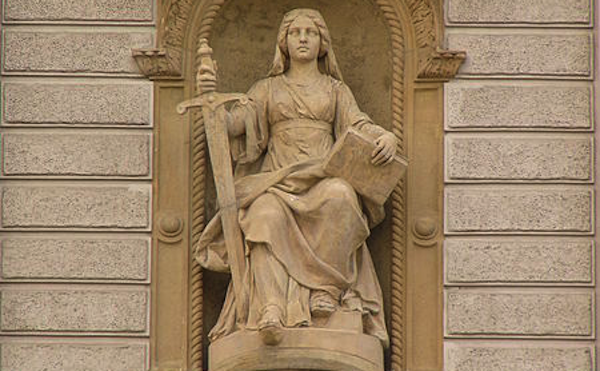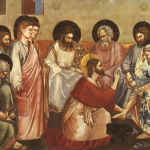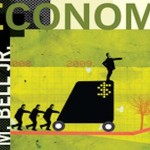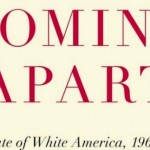In light of Sarah Ngu’s recent post on privilege, I’d like to offer some rough thoughts on problems we face in defining privilege and distinguishing between the moral qualities of different sorts of privilege. I’m still working through the issue, so comments on the view I’m presenting would be appreciated.
1. In Sarah’s post, she cites Andy Crouch’s definition of privilege as the enjoyment of benefits on the basis of someone else’s past creative power.
2. By this definition, privilege includes every aspect of human life. I breathe today because of the exercise of creative power by my parents in the past. I use this computer because of the exercise of creative power of its manufacturer, of the people who built it in a factory somewhere, of scientists in universities who developed the techniques necessary to make complex instruments like this one possible. Everything we do participates in this dependence, this reaping of benefits.
3. Clearly the sense of the word “privilege” normally used in moral discussions is narrower than all that. It makes little sense to attach the normal moral weight associated with privilege (generally, guilt) to my ability to eat or breathe or sleep or think about chestnuts. Dependence and debt do not imply abuse or injustice.
4. So how do we sift out the different moral strata of privilege? Instead of settling with “those benefits that result from the past use of creative power by others,” I’d like to outline two progressively narrower descriptions of privilege which help convey the moral relevance of the concept.
5. First, there’s the privilege which forms a habitual, invisible element of our daily way of existing. The privilege of having decent roads, of having a postal system, of being able to trust that no one will murder you in the night, of finding fellow citizens affable and open to discourse or friendship, of expecting to be cared for by your mother and father, of expecting your children to care for you in your senility, etc. These are privileges (whether some of them are also rights—that is, things we owe to each other as basic conditions of social order—I will bracket) that are not universally shared, but which form and make possible the way of living that many of us enjoy. Privileges of this variety—let’s call them customary privileges, since they depend on the stable customs of a society—are good to have and to share, and they are generally expressions of a kind of social excellence.
6. The moral quality of these customary privileges comes chiefly from the way they form our habits of thought and expectations about the world. Someone who comes from a socially well-adjusted and virtuous background may be less inclined to understand how defects in other sectors of society cause difficulties. The comfortably employed republican may have moral scorn for the obesity of the urban poor, not realizing the ways familial breakdown, community violence, anxiety and poverty conspire to make obesity more common. Likewise the trendy bourgeois university student may have a patronizing contempt for that same population, imagining that their lack of educational privilege makes them incapable of rational judgment and in need of intervention from the state and its cronies to run their lives. (Variants of these two errors abound.) Privilege can shape our expectations and lead to delusional prejudices and bad judgments about unfamiliar ways of living.
7. Note, though, that just as privilege in general, by Mr. Crouch’s definition, has no intrinsic moral quality to it, what we’ve called “customary privilege” is likewise morally neutral. Sometimes it leads us into error, but this is only an accidental consequence of what might otherwise be a positive moral good. To be raised in a community with stable homes, good friendships, the influence of extended family, reasonable prosperity, work, and education is indeed a great thing. That familiarity with such a world would lead to confusion about the precise conditions and mechanics of a situation which defected from that ideal is no sin. Imprudent intervention in or unjust condemnation of someone else’s life on the basis of ignorance is, however, morally questionable.
8. We divided off “customary privilege” from privilege taken generally by limiting it to those benefits that form a habitual (and therefore largely invisible) element of our daily way of existing. Thus there are many benefits received on the basis of past exercises of creative power that are not “customary”. The difference between customary privilege and non-customary privilege is thus essentially determined by the subject who receives the benefits in question: whether he is aware of their contingency and recognizes their dependence on the work of others.
9. However, we can divide privilege a second way, not on the basis of the person receiving benefits, but on the basis of the “creative power” by which the benefits are won. In the subject that receives the benefits of privilege, the moral quality comes most obviously through the ways privilege shapes that person’s understanding of the world and the moral character it encourages in the individual and his actions toward others. But on the part of the person exercising a power to create benefits, the morality rests not in the shaping of his consciousness but in the rectitude of the act itself. Thus, depending on whether the original act or set of acts by which benefits are won is morally good or corrupt, we can divide privilege accordingly. In particular, we can specify “unjust privilege” as benefits accrued from a past act or set of acts which are unjust or broadly immoral.
[10. Here the phrase “creative power” used in our original definition proves to be quite dubious, since obviously many benefits are won by the use of power that is not creative at all. (Those of us accustomed to “checking our privilege” probably cringed when we read Crouch’s definition, since it assumes moral positivity in past actions that are frequently dubious or evil.) ]
11. Unjust privileges seem to lack the broad moral neutrality of customary privileges and privilege in general, because it is possible for privilege derived from evil acts to perpetuate an acceptance of that evil, or to make the original injustice habitual and invisible. Possible, but not necessary. It is likewise possible for unjust privilege to result in a basically normal and morally neutral way of thinking and behaving, but one that still bears the consequences of past sin. The great great grandchildren of a usurper king may be just and godly rulers, though their line lacks historical legitimacy. This fact of history need not morally taint their personal acts. They are not guilty for receiving the benefits of their ancestor’s crime.
12. So again it seems that even privilege based on past acts that are morally evil does not necessarily implicate the beneficiaries in that guilt.
13. We are left, then, with two ways of thinking about privilege, neither of which necessarily carries with it any degree of moral fault. So how does moral fault enter into privilege in general?
14. Privilege is the reception of benefits on the basis of someone else’s past (or continuing present) actions. Privilege becomes morally problematic when the acceptance of these benefits participates in a systematic injustice or evil act which deprives someone else of what is due to them or is morally corrosive of the one benefitting. This is to say, if in accepting the benefits of privilege one is depriving another person of what is rightly theirs, and perpetrating or perpetuating some act of violence against them.
15. Aside from such situations, privilege is morally neutral, and becomes significant in the moral life of individuals only insofar as it shapes their understanding of things and ability to make sound prudential judgments. However, privilege is not unique in creating bias or prejudice, since the lack of privilege likewise participates in the formation of our understanding of the world, and just as often for the worse.
16. This is to say that it is not privilege as such that has any particular bearing on someone’s moral status or credibility, but their honesty, prudence, justice, and general moral rectitude. With privilege or without it, the same things make one a good person or a bad person. Privilege itself has no intrinsic moral status, but acquires moral relevance only by association with some other act. We might compare privilege to a hammer, which is ordinarily a neutral tool, open to being used in a variety of ways, but when misused for malicious intent or stolen from someone becomes implicated in that evil.
17. Thus the rejection of any intellectual position on the ground of the privilege of the one holding it is prima facie ridiculous and, worse, unjustly discriminatory. We should be as unwilling to tolerate discrimination on the ground of privilege as discrimination because of the lack of privilege.
18. And, finally, the assignment of guilt (or praise!) merely on the basis of whether someone has received the benefits of others’ past actions is likewise reprehensible and unjust. Privilege does not impart guilt any more than disadvantage and oppression do. Instead it is always injustice, imprudence, officiousness, intemperance, cowardice and pride that create guilt. And these are qualities to be found across all strata of society, regardless of one’s privilege.
[Image of Justice from Wikipedia]













